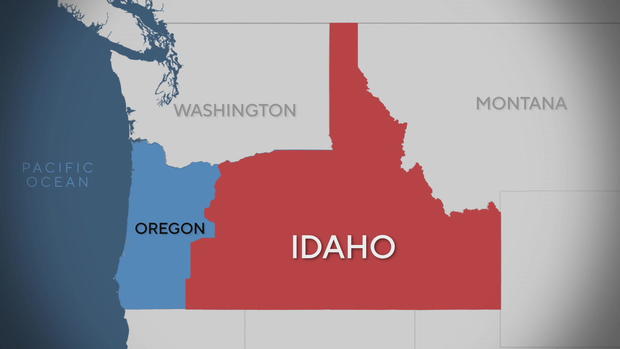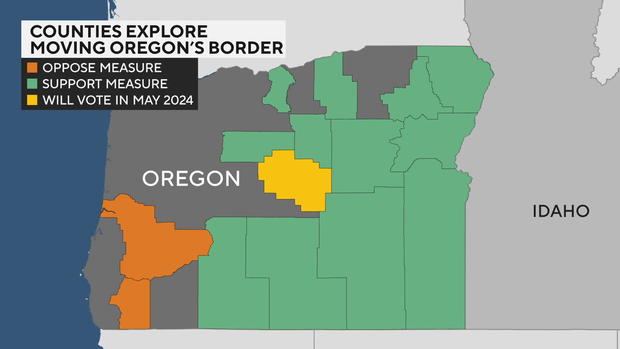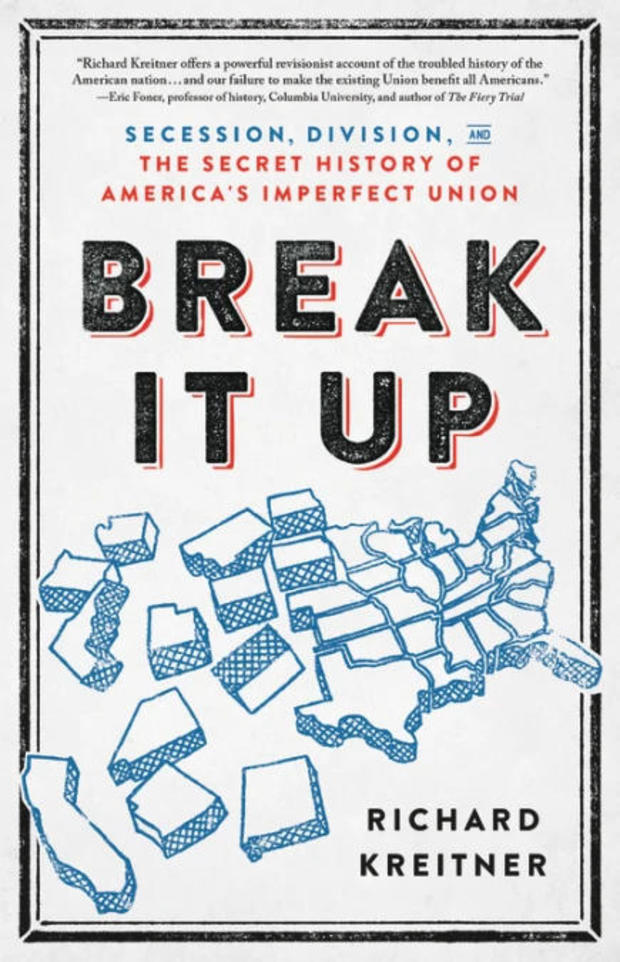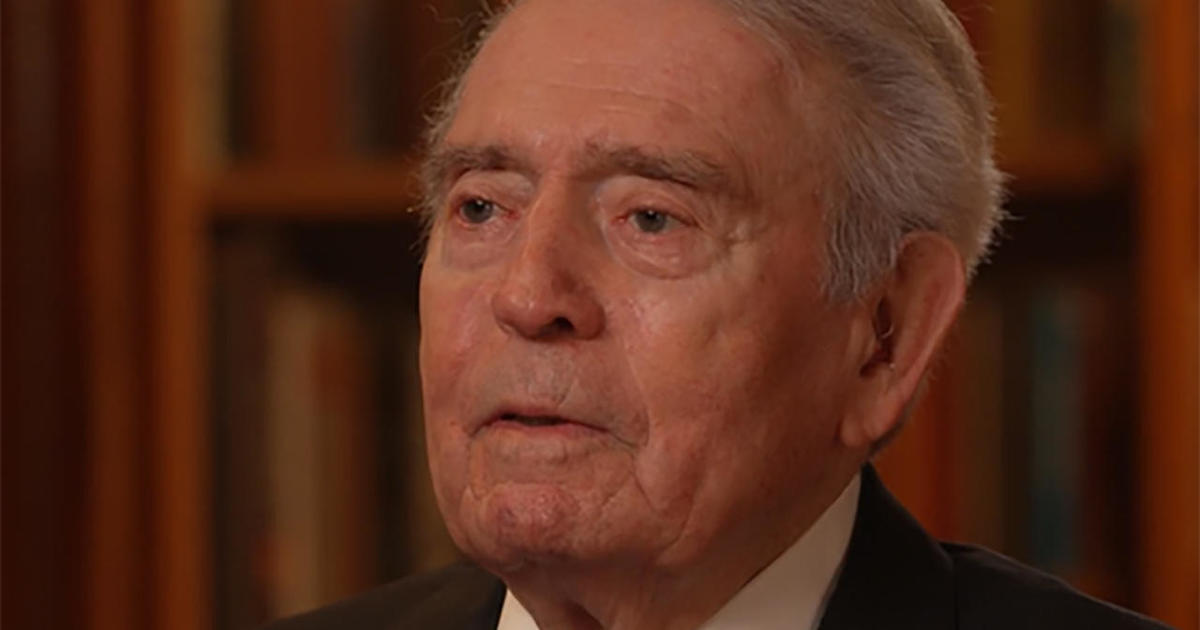Secession: Why some in Oregon want to become part of Idaho
Mike McCarter knows his American history almost as well as he knows his Bible. His family has lived and worshipped in Oregon for four generations. "The only time I lived out of the state was during the Vietnam War when I was in the military," he said.
But his Oregon may not be the Oregon you're thinking of, the one with the misty rugged coastline, pinot noir wineries, and its loyally Blue politics.
McCarter lives in the town of La Pine, in the state's rural and more sparsely populated part – the Red side of Oregon.
"It's almost like the Grand Canyon goes right along the Cascade Range," he told correspondent Lee Cowan. "It is a big divide."
What that means politically, he says, is that the Blue part of Western Oregon always outweighs the Eastern part's Red. "In talking to a legislator over in the Portland area, I said, 'The legislature doesn't listen to our people, our representatives over here.' He said, 'Whoa whoa whoa, stop, Mike. We hear what they're staying. We just out-vote you.'"
So, McCarter decided to look for greener pastures - or in this case, at least ones a little more red. Last fall, when "Sunday Morning" first met McCarter, he was spearheading a campaign called Move Oregon's Border. The group had been busy introducing ballot measures all across the state asking voters about the idea of pushing the urban, Blue bits of Oregon into a smaller but still populous state, and then taking the rural Red bits and creating what would be part of a more expansive Idaho.
Sandie Gilson owns a real estate business in rural John Day, Oregon, which is closer to Boise than it is Portland in virtually every way. She told Cowan, "When you have a government that won't listen to the opposition, or take into account those of us that live out here, then we have no government representation."
Cowan asked Gilson, "Are you optimistic that you think you have a chance?"
"I look at it like the American Revolution was a big hurdle to make, and they did it," she replied.
It'd been a year since "Sunday Morning" visited, so Cowan went back, to find out how things stood.
Back then, nine counties had voted in favor of considering making Eastern Oregon part of Idaho. Now, that number is up 12, with another set to vote next May.
"We're getting into people's heads about this," McCarter said.
As for Idaho, well, it's at least open to discussions. This past spring Idaho's state representatives approved a measure to begin a dialogue with Oregon over whether and how to redraw their common boundary.
But so far, McCarter said Oregon is playing hard to get, at least in public. "We've heard from behind the scenes, 'Wait a minute, if we fund a bridge in Eastern Oregon, why would be we do that if it's going to become Idaho?'" he said.
But the opposition has swung into gear, too. A Portland non-profit called Western States Center is branding the move a "radical change" that would raise taxes and cut wages. Comparing it to Oregon's past white nationalists hate groups, one ad declares, "Members of Patriot Group, a white nationalist hate group, support a secession. Makes you wonder: Why are violent extremists pushing for secession?"
Their message: If rural conservatives don't like Oregon's urban liberal leanings, well, don't move the border, move themselves instead.
McCarter said, "We're not running away from the problem, we're not going to run away and move to Idaho. We're going to deal with the problem right here and now."
There are a lot of details still to be ironed out, and the devil is in every one of them. Not to mention the fact that actually changing the border would require both Oregon and Idaho to agree, and would then need approval by the U.S. Congress.
Richard Kreitner, author of the book "Break It Up: Secession, Division, and the Secret History of America's Imperfect Union," says it's hardly a new idea: "I don't think that we should act like state lines are written in stone. We should look at them and say, 'Does this actually make sense?'
"Secession has always been there. Catholics lived in Maryland, debtors lived in Georgia, you know, Puritans lived in New England. They were kind of separate to begin with. And that's why they wanted nothing to do with one another."
"So, it's really woven into our DNA?" asked Cowan.
"Absolutely. There's nothing sacred about Oregon. There's nothing sacred about Delaware or my native New Jersey, in my opinion. You know, these are just kind of inherited forms."
Mike McCarter will be the first to tell you that moving Oregon's border is radical. But, he says, if we've learned anything about our politics in the last several years, it's that "conventional" seems so yesterday.
"I mean, as fast as things are changing in this country right now, why can't we?" he said. "Why can't people still have the right to vote for who governs them?"
For more info:
- GreaterIdaho.org
- "Break It Up: Secession, Division, and the Secret History of America's Imperfect Union" by Richard Kreitner (Little, Brown and Co.), in Hardcover, eBook and Audio formats, available via Amazon, Barnes & Noble and Bookshop.org
- richardkreitner.com
- Western States Center
Story produced by Michelle Kessel. Editor: Remington Korper.






